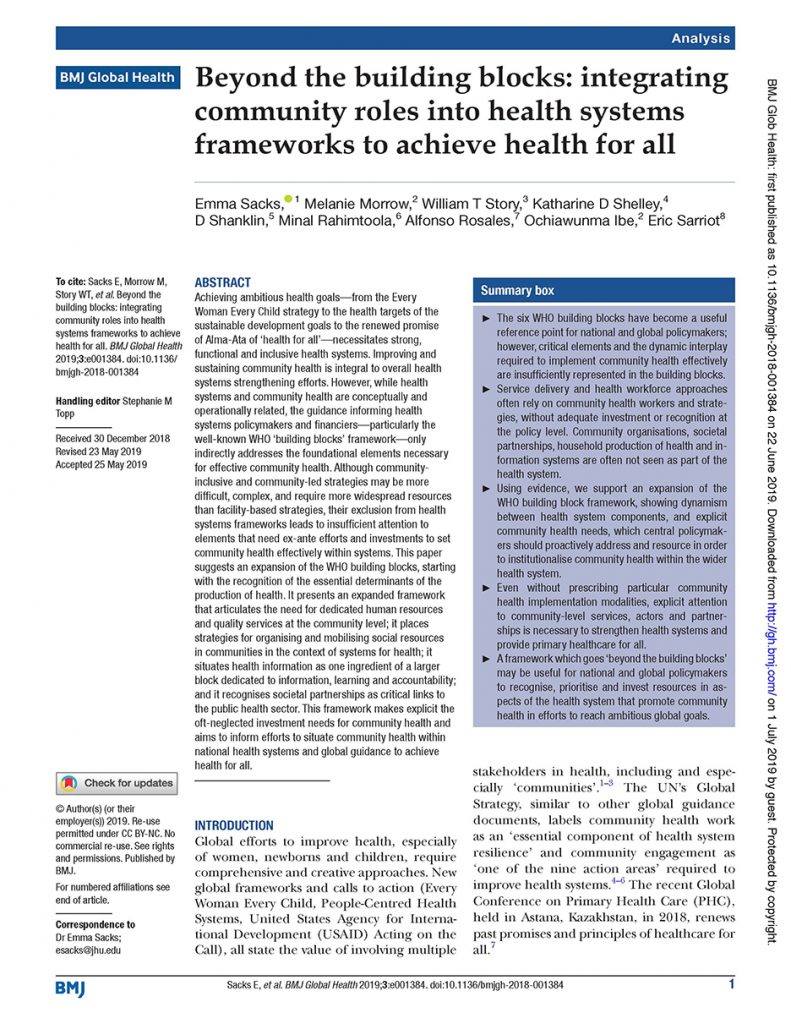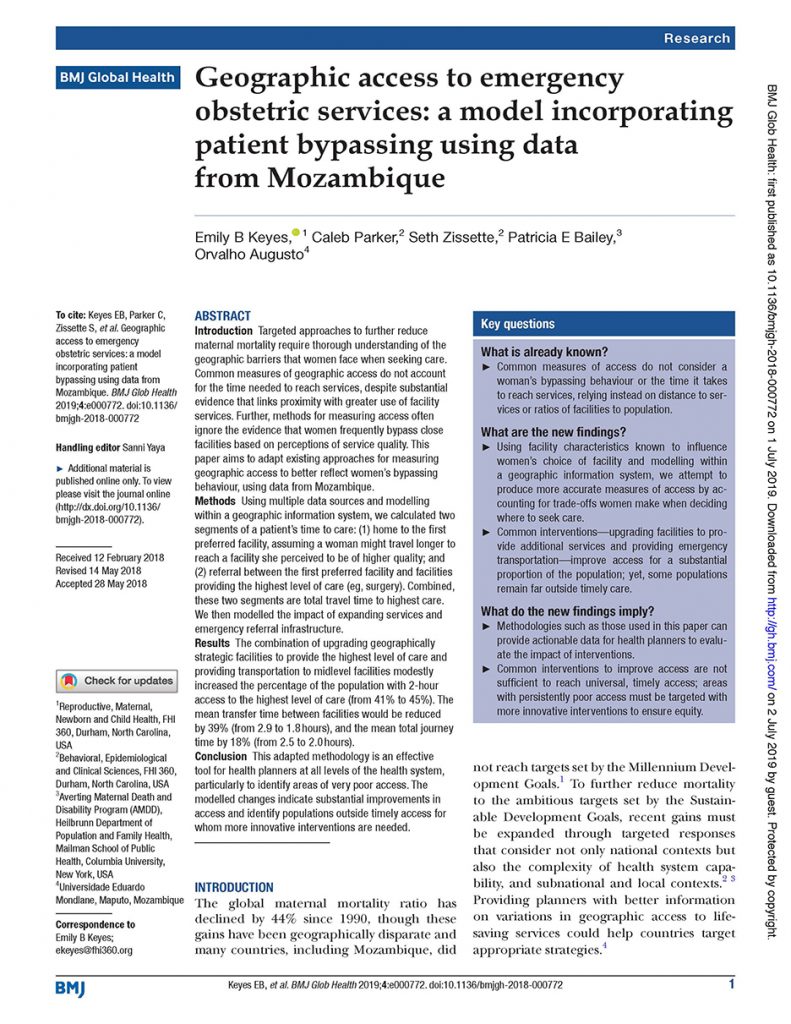
Targeted approaches to further reduce maternal mortality require thorough understanding of the geographic barriers that women face when seeking care. Common measures of geographic access do not account for the time needed to reach services, despite substantial evidence that links proximity with greater use of facility services. Further, methods for measuring access often ignore the […]
Read More…
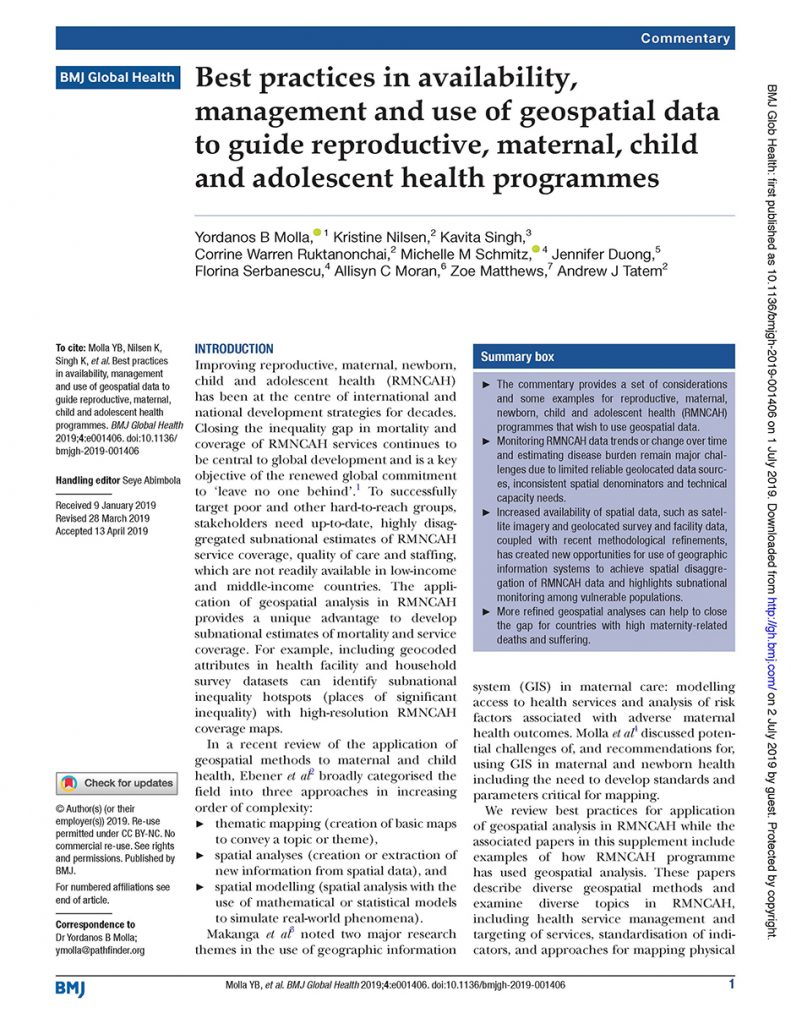
The commentary provides a set of considerations and some examples for reproductive, maternal, newborn, child and adolescent health (RMNCAH) programmes that wish to use geospatial data. […]
Read More…
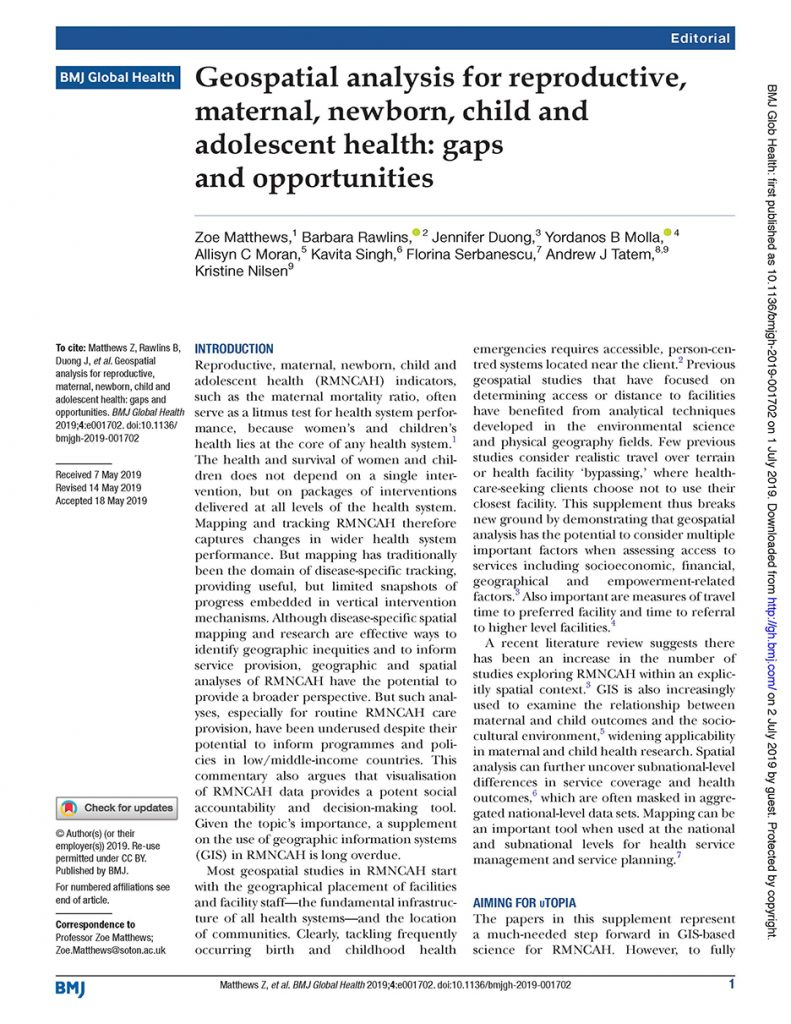
Reproductive, maternal, newborn, child and adolescent health (RMNCAH) indicators, such as the maternal mortality ratio, often serve as a litmus test for health system performance, because women’s and children’s health lies at the core of any health system. The health and survival of women and children does not depend on a single intervention, but on […]
Read More…
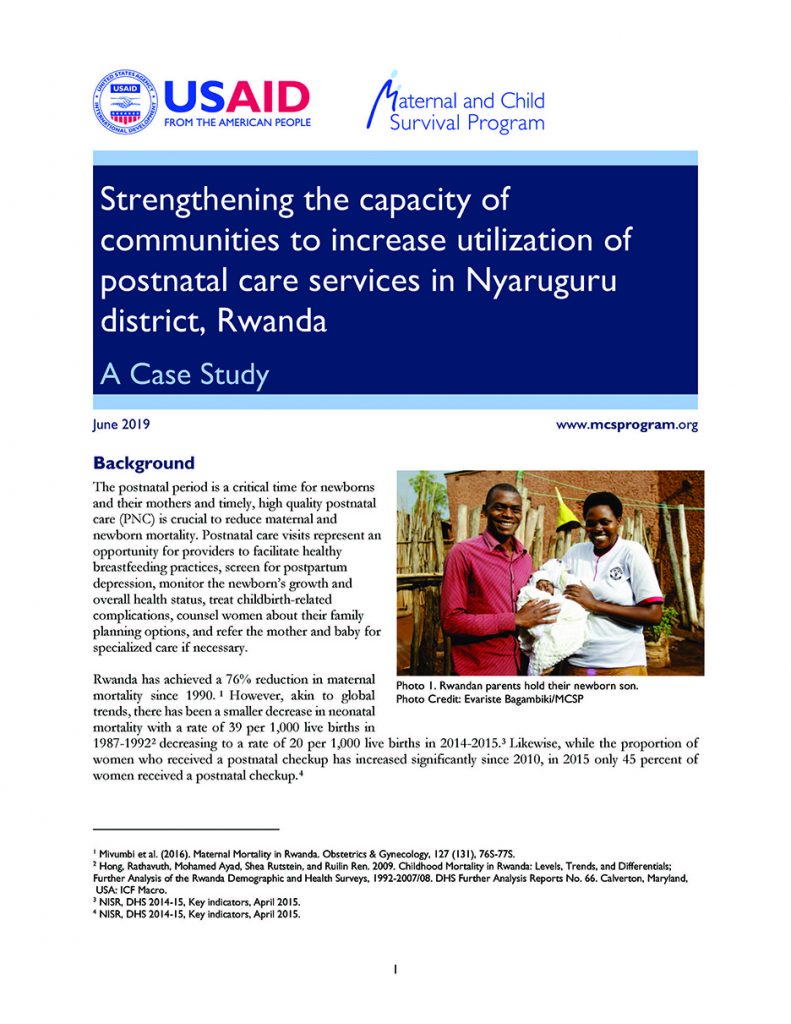
MCSP worked with the Rwandan Ministry of Health (MOH) and the Rwanda Biomedical Centre (RBC) to accelerate the reduction of preventable child, neonatal, and maternal mortality in 10 districts in Rwanda from April 2015 to September 2018. Given that many newborn deaths are preventable through improved care in the postnatal period, MCSP emphasized integration of […]
Read More…
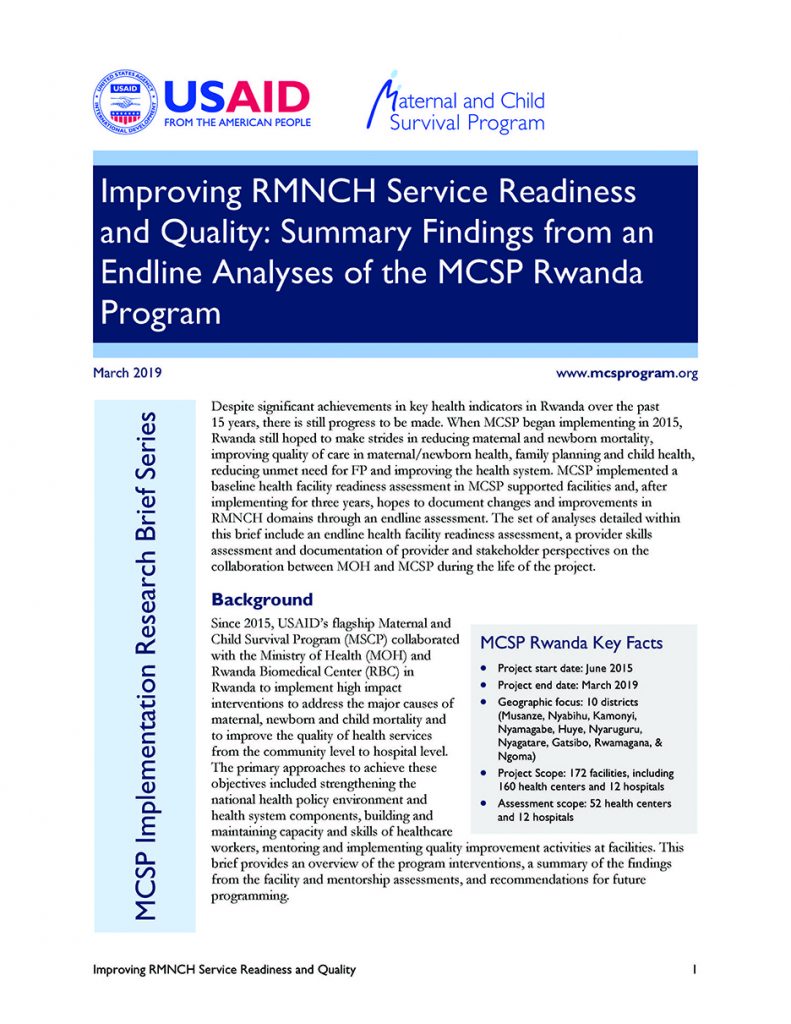
MSCP collaborated with the Ministry of Health (MOH) and Rwanda Biomedical Center (RBC) in Rwanda to implement high impact interventions to address the major causes of maternal, newborn and child mortality and to improve the quality of health services from the community level to hospital level. The primary approaches to achieve these objectives included strengthening […]
Read More…
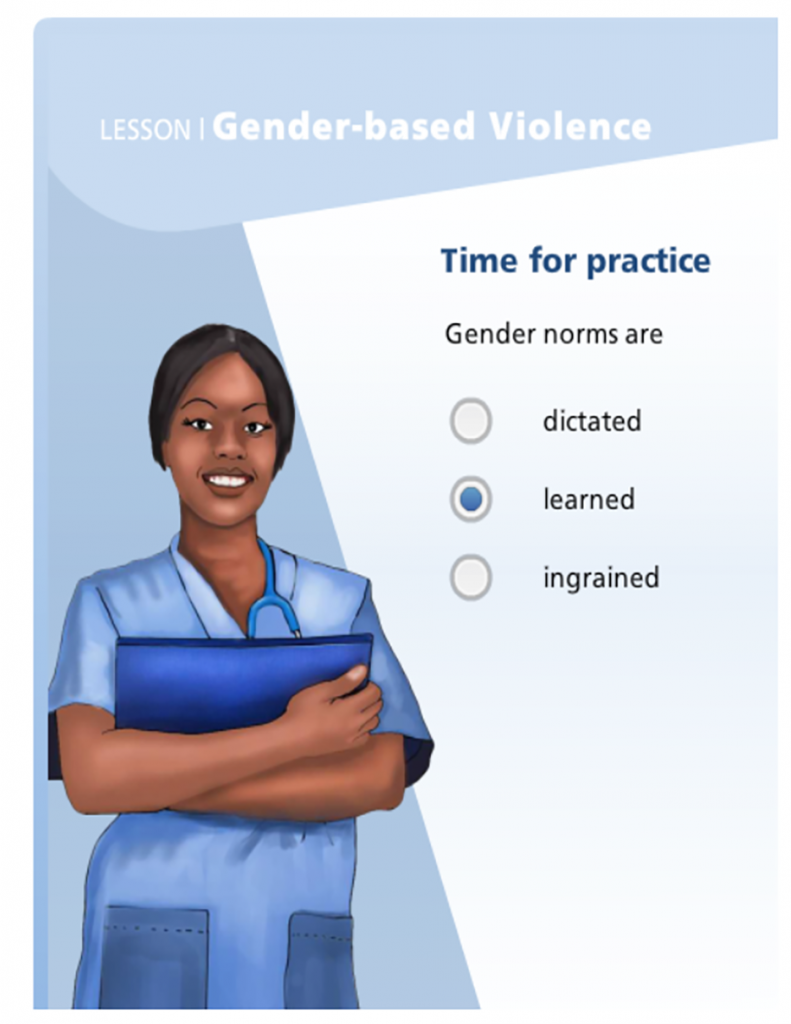
In Madagascar, MCSP adapted and translated an e-learning module for the antenatal care setting, which it originally developed in partnership with Ghana’s Ministry of Health and validated by the Nursing and Midwifery Council of Ghana for use in the pre-service setting with community nurses and midwives. The learning objectives of the module include: Define gender, […]
Read More…

The Government of Ghana requested MCSP’s assistance in developing an e-learning module for pre-service education in midwifery and nursing. It was developed in partnership with Ghana’s Ministry of Health and validated by the Nursing and Midwifery Council of Ghana. The learning objectives of the module include: Define gender, sex, violence, and gender-based violence (GBV) Explain […]
Read More…
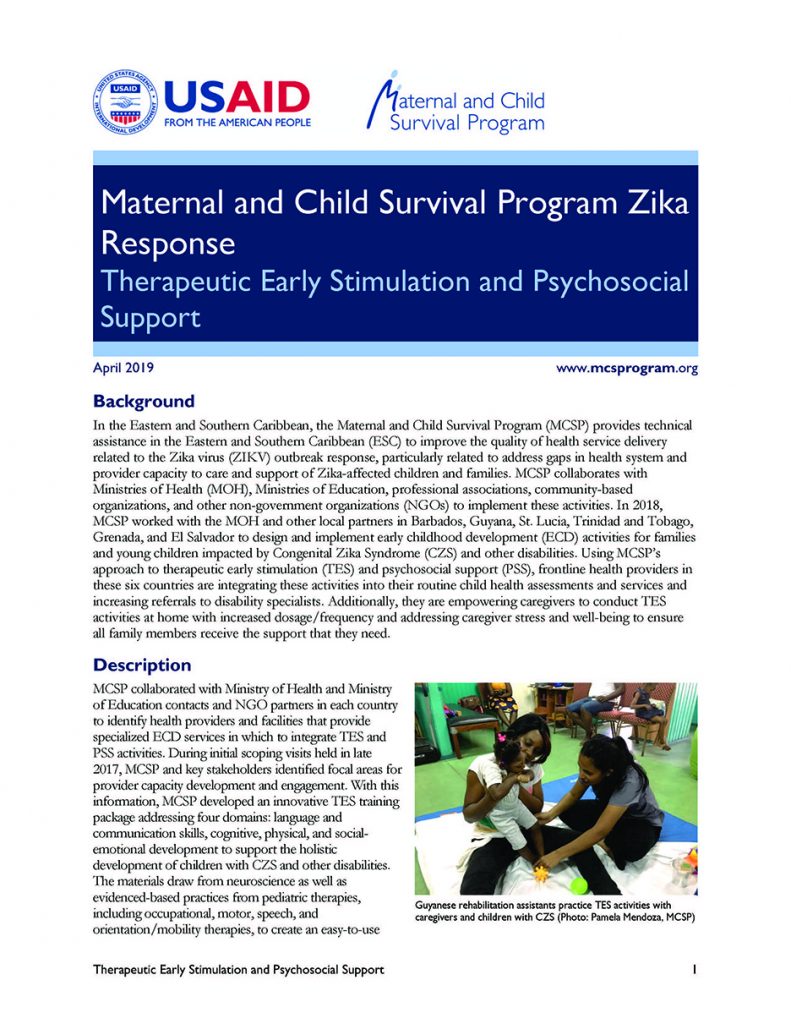
MCSP worked with the Ministries of Health and other local partners in Barbados, Guyana, St. Lucia, Trinidad and Tobago, Grenada, and El Salvador to design and implement early childhood development (ECD) activities for families and young children impacted by Congenital Zika Syndrome (CZS) and other disabilities. Using MCSP’s approach to therapeutic early stimulation (TES) and […]
Read More…
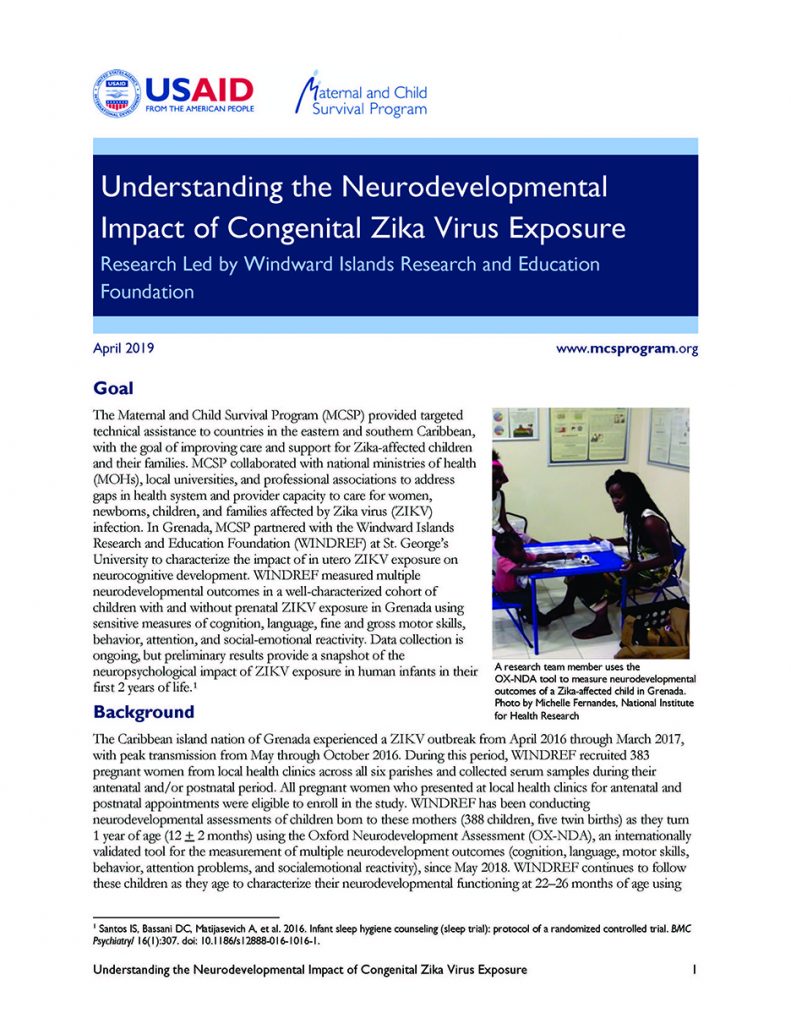
In Grenada, MCSP partnered with the Windward Islands Research and Education Foundation (WINDREF) at St. George’s University to characterize the impact of in utero ZIKV exposure on neurocognitive development. WINDREF measured multiple neurodevelopmental outcomes in a well-characterized cohort of children with and without prenatal ZIKV exposure in Grenada using sensitive measures of cognition, language, fine […]
Read More…





